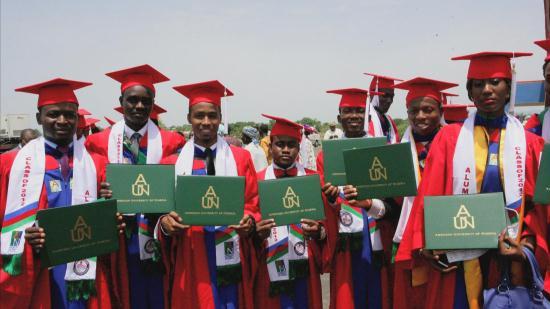Since more than 250 schoolgirls were abducted in Nigeria by the terrorist organisation Boko Haram, security has become the top priority for Margee Ensign, head of the American University of Nigeria. The institute is perhaps the only academic institute in the African continent which follows the western pattern. The university is situated Adamawa state in the troubled northeast region of Nigeria. Ensign is aware that the Islamist extremist group, responsible for numerous deaths in the area from 2009, is aggressively against Western influence, particularly in education. She recently said “Our primary responsibility is making sure the students and the community stay safe.”
Creating a platform
The American University of Nigeria now serves as the residence of 21 girls among the 250 schoolgirls who were abducted at the crack of dawn in April 2014 from a secondary school located in Chibok town near Borno state. Although dozens of the victims have successfully escaped, around 219 of the kidnapped girls still remain unaccounted for. After finding out about the keen interest of the escaped girls in education, Ensign set up a foundation which would offer scholarships to them and other students. However, at present the students do not take any regular classes. Regarding the focus of the girls on preparing for exams, she said “ They were taking their national exams the night they were kidnapped.”
The institute had introduced the Adamawa Peace Initiative back in 2012 in order to “foster peace through education, empowerment and community development.” Last spring, President Goodluck Jonathan instructed the army into Yobe, Borno and Adamawa states after a state of emergency was imposed by the government.
Before the presidential election last month, where former military ruler Muhammadu Buhari won the support of the voters, the government said it has been successful in eradicating the terrorists from Adamawa state and was focused on doing the same in other states.
Destruction and damages affecting education
Ensign, director of the peace initiative, recently informed that she had “just returned from a trip up north, where damage is horrible.” In the latest blog update for The Huffington Post, where she occasionally writes about Nigerian developments, Margee Ensign described numerous scenes of destruction in houses, mosques, churches, communications facilities and even health centers. According to her, in one town “most of the public buildings had been shelled or burned. … No farms were being cleared and prepared for the rainy season.”
She believes that NGOs “have been quite slow” in their response to the exceptional humanitarian needs in the region. Ensign admitted that the Nigerian Red Cross and some other groups were actively providing support. But she said that “over 200,000 young children are not in school,” and she wishes to establish “mobile education” training centres to help these students access education easily.
Making education accessible
The American University of Nigeria has already set up a literacy programme which is focused “to reach as many young people, boys and girls,” as possible. She believes that most Nigerian parents are interested in getting their girls educated. However, they lack the proper resources, access and security.
What are your thoughts on this topic? Would you like to add to the discussion? Then feel free to comment below.
Article source - bit.ly/1IBiVWJ



No comments:
Post a Comment